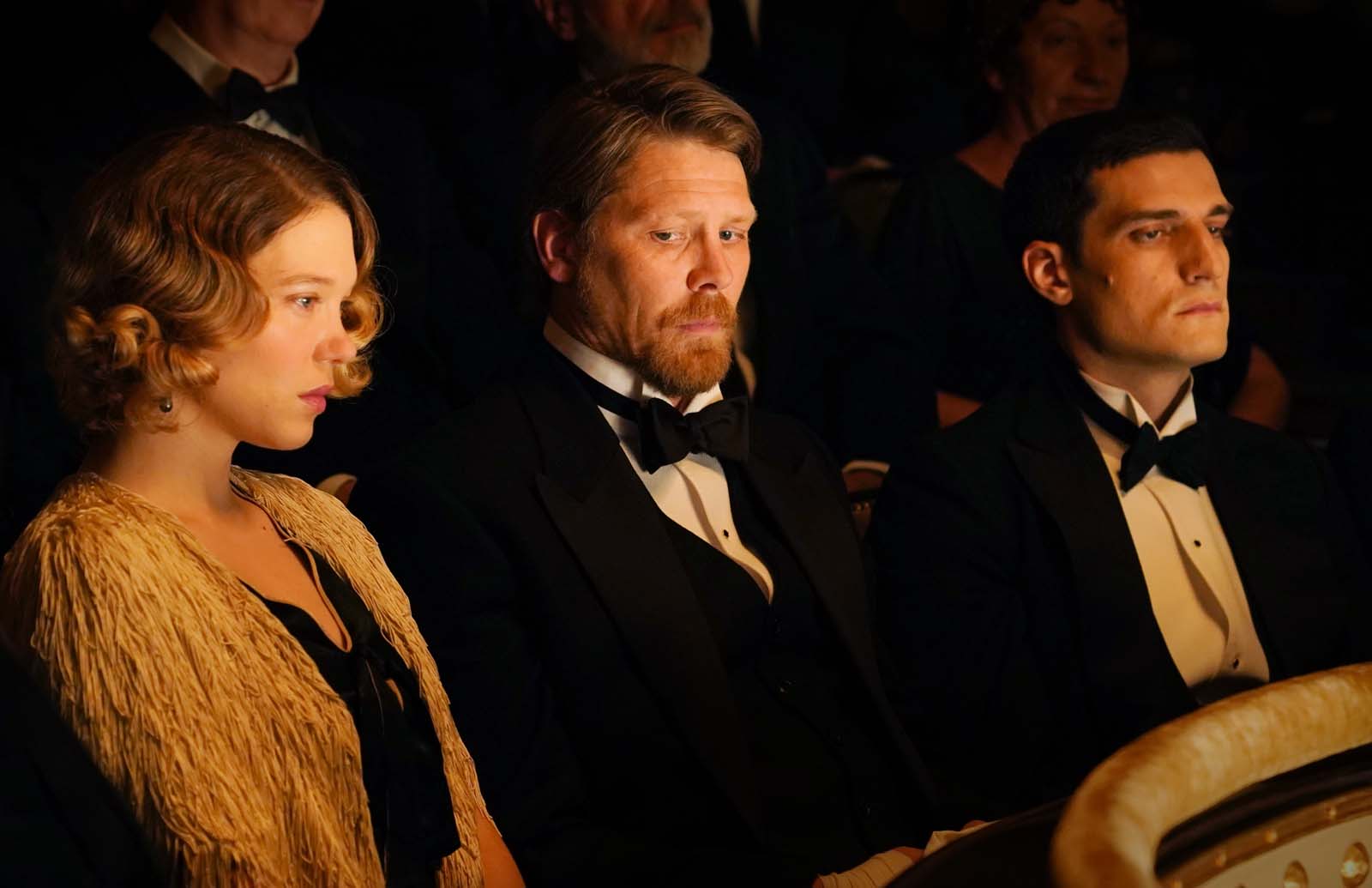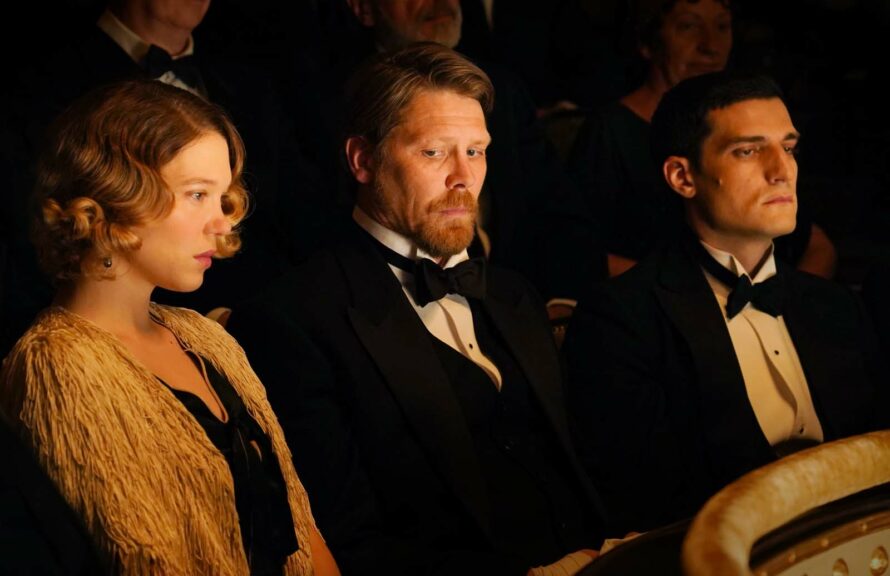
A FELESÉGEM TÖRTÉNETE (THE STORY OF MY WIFE) by Ildikó ENYEDI (Hungary) with Léa Seydoux, Gijs Naber, Louis Garrel
Jacob is a sea captain. One day, he makes a bet with a friend in a café: he will marry the first woman who crosses the threshold. That’s when Lizzy enters…
The simple reading of the title The story of my wife allows us to slip some clues on the kind of film we could expect. First of all, there is little style effect and little mystery. Limpidity, simplicity (in appearance we say well) and prevalence of the narration. Bovarian history probably still imagines. In any case, we really wanted to discover this Hungarian film for several reasons.
The first came from the reputation that preceded the film, and its director Ildiko Enyedi, so rare on screens. Her very distant « golden camera » in 1989 for My xx th century, our recent delight for the vitality of Hungarian cinema, whether it be the polished works of László Nemes and even more, our favorite of the year 2020, Preparations to be together for an unknown period of time, by Lili Horvath, with such Kieslovskian accents (a kind of cinema that we thought almost disappeared and that we were missing), our very pronounced interest for W. J. Has (The Hour-Glass Sanatorium) being the other arguments justifying this desire.
From the outset, we notice, both pleasantly but also with a little regret, that the film sticks to a very classical form. The photography, the direction, distinguish themselves from ordinary productions, perhaps not at the level of Visconti, but in any case, with a palpable requirement. The red draped sets, the velvet interiors, the shimmering colors give to the places and to the film warm notes, maybe too reassuring. Very quickly, we also notice the subtlety of Léa Seydoux‘s interpretation, in an ambiguous role (with this question that we don’t know for sure, is the film meant to be feminist?), of which she manages to bring out the different nuances with the seriousness and application that we know her for (when she will surprise us even more a few days later in her ability to reinvent herself under Dumont‘s camera). Numerous themes, rarely evoked in the cinema, are invited in a subtle writing, made of patience, discernment and application. The main actor also embodies very well his character of a virile man, in love with his wife, but unable to understand her expectations, to see clearly between the game of seduction, the feeling, or on the contrary the manipulation. One is reminded of the captain played by Jean Gabin in Stormy Waters by Grémillon. The place of the woman in the couple, the horizon that a marriage can offer to a woman of an absent man are at the center of the story, as well as the psychology of each of the two characters. She, light in appearance but sure of her intentions, who likes to have fun in life, he, capable of frivolity at times, a man of defiance, with a seriousness that is both fundamental and inherent to his vocation as an old sea dog. Among the good points, let us note some nice ideas of staging, as well as the captivating direction of the actors.
The overall effect, rather graceful, suffers, however, from what is otherwise its strength. The filmed novel, made up of nuances and small details that patiently intrude, the very complexity of the relationship, and even more so of Lizzy, with multiple, varying or troubled feelings and aspirations, certainly required this meticulous and lengthy development. But the narrative rhythm suffers from this, the different chapters translating different stages of the evolution of the relationship, do not benefit enough from a surprise effect, the classical form, appreciable in other respects, questions us, does it not lack a fantasy, a madness, a more fantasized dimension, even a poetry that would take us further away ? Doesn’t it lack a more intense spring than the disturbance supposedly created by the lover (Louis Garrel for once a little lost and rather uncomfortable) that comes to question the initial relationship and its evolution? The decay of love as the captain’s boorish character asserts itself, as he capsizes and sinks (in alcohol in particular) in the face of his own limits, his inability to revive the imagination and to be the intellectual equal of the one he chose on a poker run to be his wife, would it not have been more intense if the explanations were not so limpid, if a part of mystery, of madness in the eyes of our captain, broke the demonstrative linearity?

